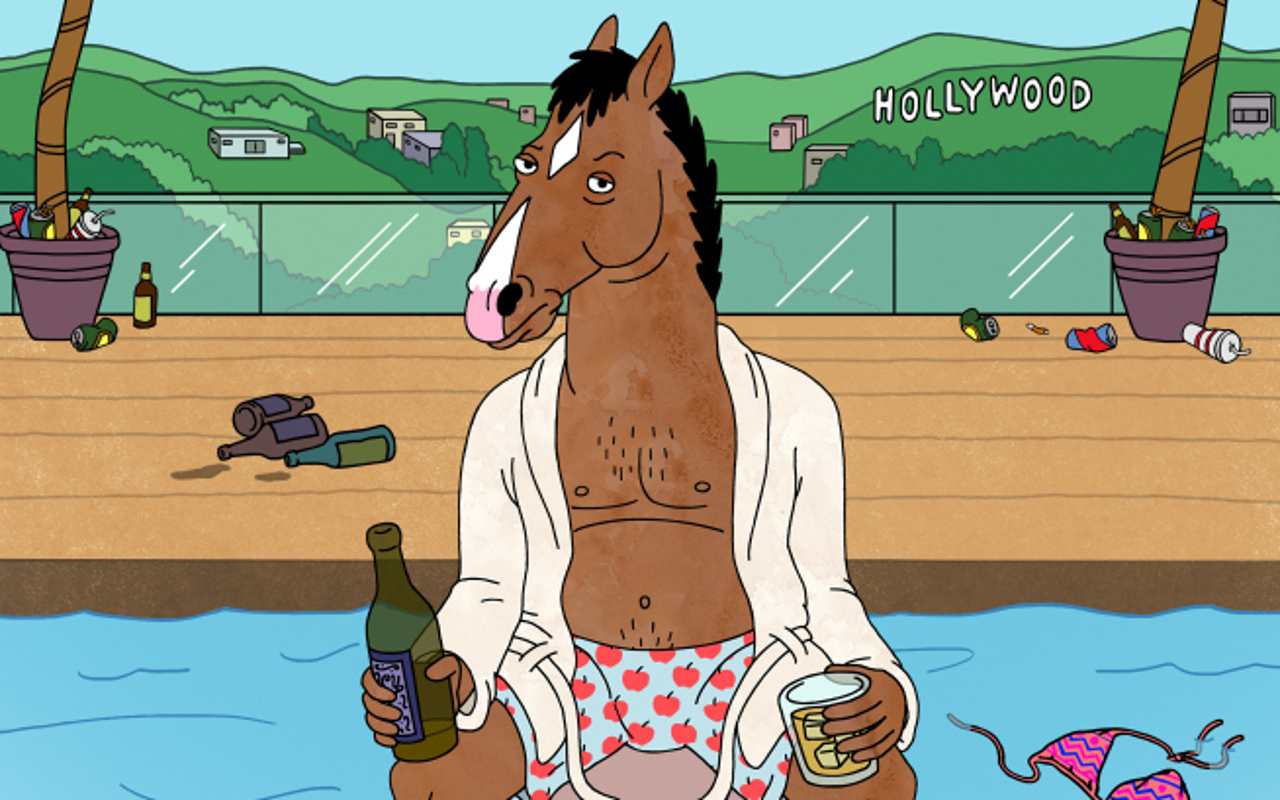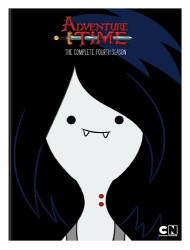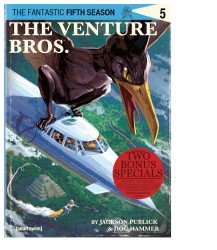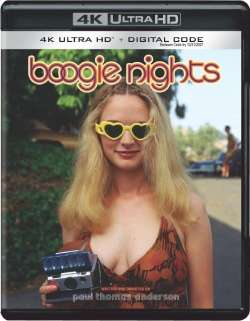Let it be known that although Animated Anarchy is made with the safety and care of equines in mind, it is held together by Elmer’s Glue.
So before I get to the big review topic of this weeks blog, I’ve been wanting to talk about a noticeable change in my experience watching cartoons. Thanks to the work of Cartoon Network’s brilliant programming schedules, shows like Adventure Time and Regular Show remained steady in the world of broadcast animation. No matter what the time, day of the week, or bizarre theme to connect four shows together at once, Cartoon Network has remained consistently viable by changing the definition of an episode “premiere.”
We’ve known a premiere as a new show in its entirety taking up the full 30 minutes of it’s designated blocks. In a move that feels disingenuous, but smart from a marketing standpoint, Cartoon Network has narrowed this down to be a single, fragment of that show instead of giving us two or three episodes for the price of one as we’ve become accustomed too. I imagine years ago, I would have been outraged that they were shortchanging me by only giving me a small chunk of an episode to chew on week-by-week. But these days with a glut of amazing things to watch, limiting the stream to one small episode of Stephen Universe or Adventure Time per week keeps me invested in every show.
It’s a big dynamic shift in how kids watch cartoons these days, but we live in a time of Netflix, Hulu Plus, and Streaming that allows us to see any show, current or past as much as we want. This slower pace also alleviates much of the stress from the animators who get every episode highlighted. Think about it back in the day when an episode of Dexter’s Lab or Ed, Edd, and Eddy was promoted to us. Yeah, you’d get invested in the upcoming episode, but we’d also completely wonder about the next one or two segments to come afterwards. Would they be any good? The Cartoon Cartoon Fridays programming block was great as an event, but that was a lot of animation to digest in one evening.
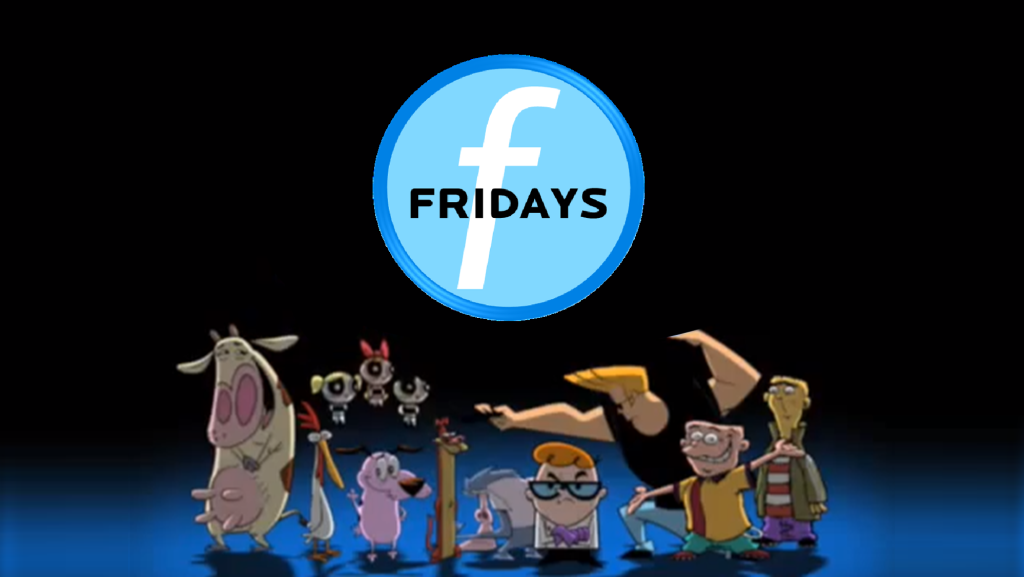
In retrospect, the new way of branding TV shows and rationing them throughout the year is a better marketing strategy that makes all the behind-the-scenes workers happy. Instead of going through mysterious slumps or droughts of seasons of reruns, we are constantly reminded when there’s a new episode or a new two-parter if it’s a significant event like a season finale. It’s probably what has led to a majority of Cartoon Network’s shows have devoted fanbases since we can get new content for 70% of the year rather than an overload during 30%. Plus, to all of us who remember checking the TV Guide for episodes, we always knew which two episodes would be sandwiched together. That’d be great for some cartoons, but others that were more hit-and-miss like Cow & Chicken or Billy and Mandy, it would just play more into the monotony.
This discussion of availability and how much is displayed at once is critical to Bojack Horseman’s success. Being Netflix’s first animated original program sets the bar for how you represent the network and what kind of talent can be brought into a new project. It’s incredibly tempting to watch all of new show at once, especially with the same team that grabbed immediate smash hits like Orange is the New Black and Horse of Cards. I was curious to see how it rated amongst buffs and TV fans a like with its unusual, shoddy art style, but immensely competent voice cast.
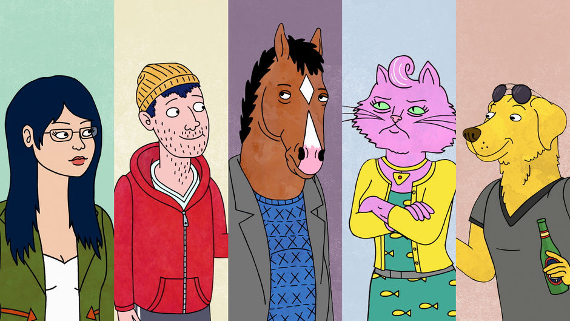
Bojack Horseman baffles me. It’s not that I don’t see the appeal or how they are using animals to play the roles in very relatable, flawed people. I just don’t understand how this show that is so painfully mediocre was able to build such a fanatical fanbase. People are claiming that show has a hidden genius by looking silly, but having tons of supposed depth and raw emotional power. Is Bojack an experience? Certainly, especially as the show prides itself with it’s use continuity and deep character plotlines. But I honestly don’t think that Bojack Horseman could have survived if it was put on Adult Swim or FX where we’d have to wait week-by-week to see what would happen next or if it would improve.
At the core of it, Bojack Horseman is a very familiar story: an obscenely rich, but washed up actor is jaded from dealing with the isolation, depression, and shallow nature of Hollywood. He has his own personal demons, but has such an aggressive ego that it makes him a selfish, reprehensible asshole. Still, he wants better himself by making friends and having a comeback career, despite his frustrating views on life and impulsive decisions. I also found it particularly odd that Bojack’s dream project would be to do a movie all about Secretariat, even though they already made that movie nearly 5 years ago.
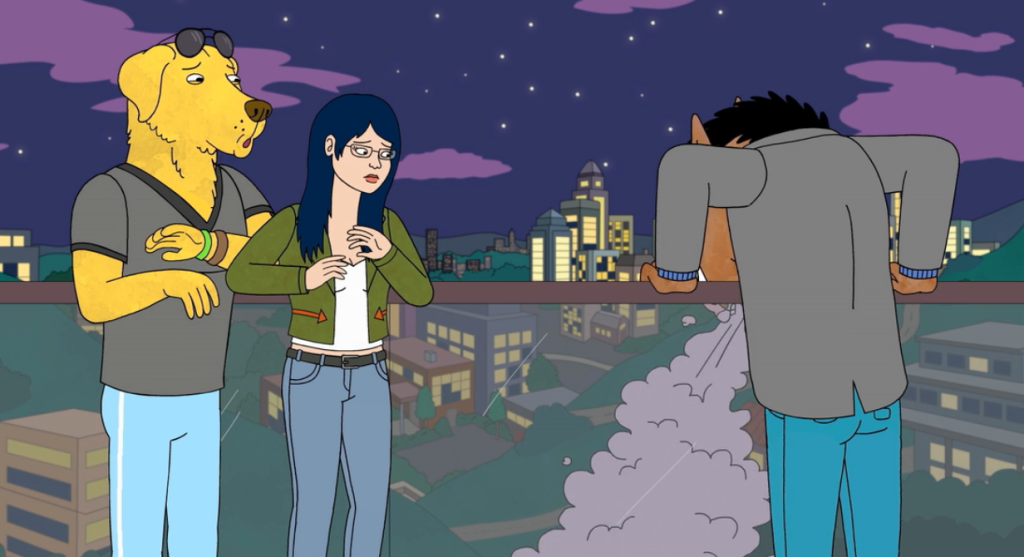
To the show’s credit, halfway though the series it becomes more of a serious character drama about how Bojack has burned bridges with people he cared about and if he’s even capable of keeping his sanity afloat with his strained relationships. There aren’t many animated cartoons that are able to handle somber storylines aside from Morel Orel or Duckman where the narrative progresses throughout several seasons in a very bleak, dark tone. Yet every time I want to credit what Bojack Horseman does, it keeps slapping me away with it’s hamfisted writing.
Creator/Head Writer Rapheal Bob-Waksberg’s inexperience with comedy keeps me from wanting to revisit the show. He wants to handle awkward comedy like Archer or The Venture Brothers, but it is nowhere near their startling quality of great nonsequiters. The humor is delivered in the exact same three ways: Someone gives an obvious precipice to the punch-line, someone goes off on a rant and the person listening completely misses the point, and/or Bojack asks over and over again if someone gets the joke or reference he was referring too. The show actually tends to be the most funny when it’s done unintentionally or when they have background/referential gags to the true animal nature of the cast.
Bojack Horseman sticks out as such a hodgepodge of ideas and cliches that it was constantly reminding me of other shows. At it’s best; the show reminded me of a program like Eastbound & Down, where I could laugh at obnoxious attitude of Danny McBride because the show was very swift at punishing his mistakes and he was entertaining no matter how awful he was. At worst, it struck me off as sheer drek like Fox’s Allen Gregory, a show that was infuriating by being forcefully, shockingly unfunny and pretentiously self-satisfying.
The program it reminded me the most of was actually The Looney Tunes Show that was recently cancelled last year. The setting and plot is based off its premise alone of shoving the Looney Tunes in a modern, suburbanite situations. Both of them suffered from the exact same problem with their humor. The Looney Tunes Show thought it was funny by acting out sitcom clichés but knowingly winking at the camera in an unflattering, Judd Apatow attempt of breaking the meta.
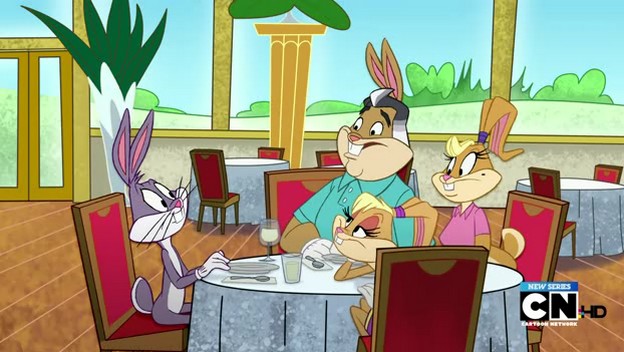
This aspect is exceptionally visible with Bojack’s unannounced Christmas Episode taking place in the fictional, feel-good 90s show that defines the premise. Bojack Horseman’s main selling point is focusing on embarrassing comedy and one-dimension characters and then flipping the premise mid-season like “No wait! We’re actually dramatic and have really layered characters!”
Did I mention how awful the show looks too? The style is designed by web-cartoonist Lisa Hanawalt, who does absurd, anthropomorphic images like a demented, children’s picture book. But the animation itself is flat and dull for 90% of the show until it goes into a drug-inspired scene. Many of Adult Swim’s shows are good at combining the gonzo animation with their absurdity. I’d even say there’s work done on YouTube channels with more life and creative ingenuity than this lifeless Flash work.
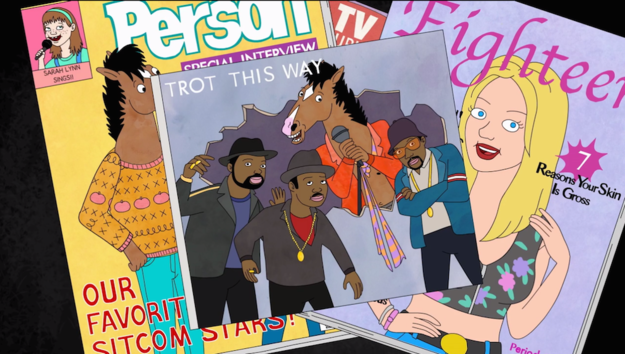
To continue on with the wasted potential of the show, it has a fantastic voice cast riddled with tons of character actors. You have Will Arnett playing the titular Bojack, although he’s essentially playing another version of Gob Bluth. I was also sad that Aaron Paul was type casted to play a watered-down version of Jesse Pinkman, which makes me unsure of what his next project will be. Yet I really loved the inclusions of Amy Sedaris as Princess Carolyn and Allison Brie as Diane, who fit seamlessly into their roles.
There’s a substantial amount of celebrities voicing versions of themselves from Margo Martindale and Wallace Shawn to even Naomi Watts. Many stars even attached themselves to one-off characters like J.K. Simmons, Stanley Tucci, Patton Oswalt, Olivia Wilde, Stephen Colbert and John Krasinski to steal their individual scenes. I get the feeling that many people attached themselves to Bojack Horseman because they saw it as the next big thing or it rung true to them, but the quality just is not there.
That isn’t to say I’ve completely written the show off. There is some genuine substance as it takes more dramatic turns to unfold Bojack’s character or emphasize on his loneliness. The episode I was really impressed by was Downer Ending, where Bojack explores his life through a drug trip that really helps you understand the sacrifices he made to become an icon and how he could have had a happier life. I can feel for this horse and the struggle is something that is very relatable; there’s just no consistency with how the audience is should feel about him. Every time I want to care, I’m being reminded that I was supposed to laugh at several of the jokes at his expense or wacky shenanigans happening to everyone else.
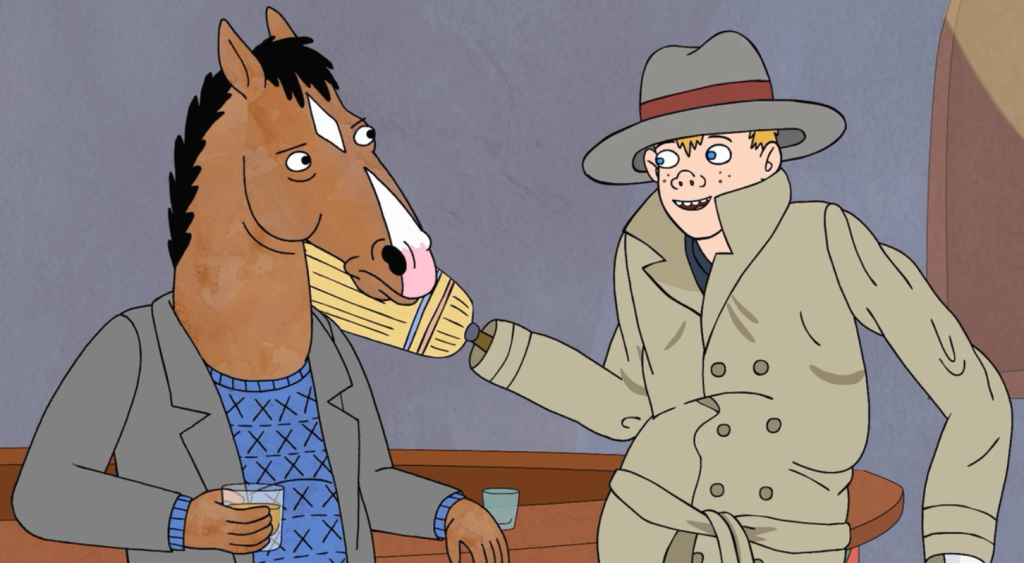
This is why I believe being that Bojack Horseman could not have worked on any other medium other than Netflix. The surprise factor of how the series changes in tone is what makes it significantly different any other show out there. You might have watched the first few episodes and thought it wasn’t funny, but you could check out the rest of the season to see if it improves, which does indeed happen. I can certainly see why the fanbase defends the show on forum posts saying “people aren’t giving it a chance” or “this is more than just a talking animal cartoon.”
We are at a great point in time where we can watch all types of cartoons on every kind of device out there. All forms of animation be it 11-minute programs or full feature amines are the most digestible shows to binge watch period. Most cartoons are tightly contained within their episode contracts so you never feel a show can get mercilessly cancelled. Bojack Horseman could play in a safe sandbox with an audience who was already willing to watch the whole season and that’s why it was immediately renewed for a second season.
However, In this day and age, you have to be more than just different to stand out as good. As animated programs move from being purely episodic to having big, continuity-driven plots, you do need more substance to hold people’s attention. What it states about the unfortunate nature of alcoholism or the obsession of celebrity culture is nothing new nor is explored enough. The show takes place on a medium where you can do absolutely anything; yet it plays down a very safe road. I am interested to see what happens in a second season, but I want it to focus on the dramatic elements. The way it handles comedy is really mismanaged, but it can succeed in telling a compelling story we can all consume once it irons out several of it’s problems.
My Arbitrary Rating on Bojack Horseman Season 1: 4 out of 10 Flasks Filled With Johnny Walker Blue Label.
Whoo, that was quite a long review. Thanks for reading everybody! I’m going to start prepping for some Oscar-related discussions to come next month! What are your thoughts on Bojack Horseman? Do you think the change in episode “premieres” is a good thing? Leave a comment below!
Interested in picking up some of the titles mentioned in the article? Please use our Amazon links to do so!



